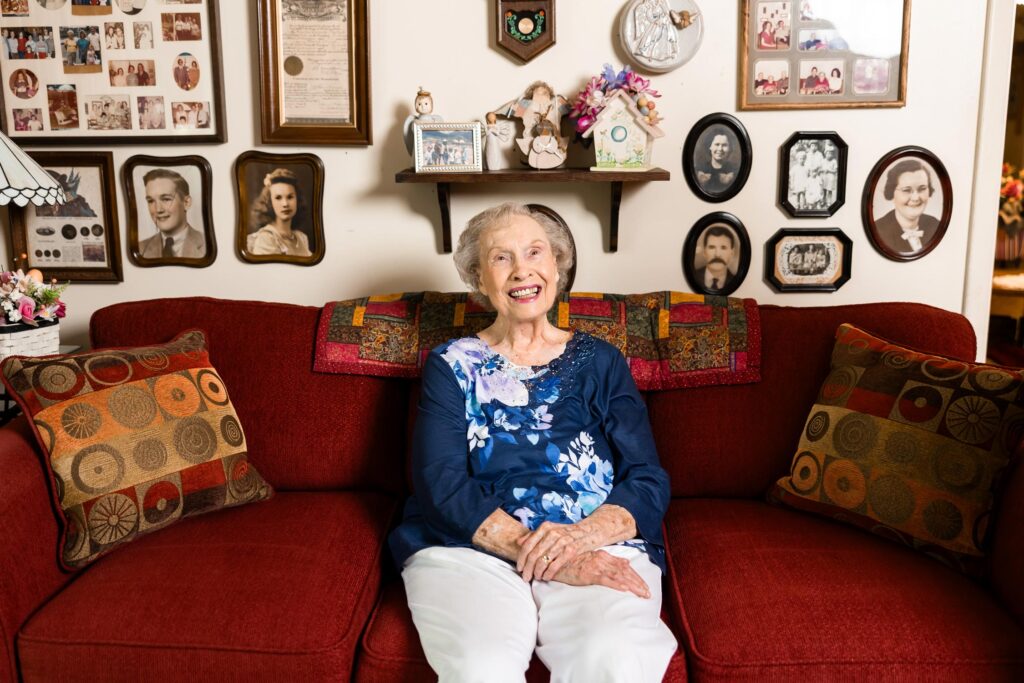Caring for an aging parent or loved one can feel overwhelming. Balancing daily tasks, managing their health, and protecting your well-being is a significant challenge. As family caregivers, you’re expected to take on many roles—but what happens when the weight becomes too heavy? In this article, we’ll explore the challenges faced by family caregivers every day, offering insights to help you find balance, reduce stress, and continue providing the compassionate care your loved ones deserve.
Key Takeaways of Challenges Faced by Family Caregivers:
- Common Responsibilities: Daily tasks often include meal preparation, laundry, bathing, managing medications, attending doctor visits, and handling bills. Having knowledge of chronic illnesses and caregiving skills is essential.
- Stress Management: Be aware of the signs of burnout (exhaustion, frustration, isolation) and address it with stress-relief practices, such as breathing exercises, yoga, or connecting with support groups.
- Balancing Life and Caregiving: Identify daily priorities, establish boundaries to protect personal time, explore time management tools, and seek help when necessary.
- Emotional Challenges: Caregiving can bring guilt, grief, and relationship strain. Work through these feelings with counseling, support groups, and open conversations.
- Financial Strain: Manage the costs of care with financial planning, tax benefits, and relief programs to ease the burden.
- Resources and Support: Take advantage of support groups, caregiving guides, local services, and peer networks for guidance.
- Technology Role: Apps, wearables, and digital tools can help simplify caregiving, reduce errors, and improve care coordination.
- Building Resilience: Practices like self-care, gratitude, mindfulness, and maintaining social connections support overall well-being and mental health.

The Most Common Responsibilities of Family Caregivers
Caring for a loved one involves more than ensuring they are safe or well-fed. Family caregivers often manage a range of daily tasks, including meal preparation, laundry, and assistance with bathing. You’re also likely to handle medications, plan medical appointments, and take care of bills. Each day can feel like a marathon, with minimal downtime.
A common question people ask is, “What does a typical day look like for family caregivers?” The truth is, it’s often packed. Mornings might start with making breakfast and ensuring medications are taken. By midday, you could be driving to medical appointments or running errands. Evenings may involve helping with dinner or preparing your loved one for bed. This family caregiver support guide provides an in-depth look at these responsibilities.
Another significant challenge is understanding the intricacies of chronic illnesses. Conditions such as dementia, diabetes, or heart disease require caregivers to stay informed about their progression. Without adequate knowledge, caregiving can feel like guesswork. Websites like this helpful resource dive deeper into these health issues and how to manage them.
Finally, improving your caregiving skills can make a big difference. Learning techniques such as safe transferring or effective communication with healthcare professionals can save you both time and stress. If you’re unsure where to begin, reach out to caregiver workshops or talk to healthcare providers directly for step-by-step guidance.
Managing Stress and Avoiding Burnout
One of the primary challenges faced by family caregivers is burnout. Burnout often creeps up when the demands of caregiving become too overwhelming. Warning signs include persistent fatigue, hopelessness, and irritability. You might notice yourself withdrawing from loved ones or losing interest in activities you once enjoyed. Left unchecked, burnout can affect your health and make caregiving even harder.
Spotting caregiver fatigue early is crucial. If you’re constantly tired, struggling to concentrate, or experiencing mood swings, these may be the first signs of stress taking a toll. Take a moment to assess your physical and emotional state and address those feelings before they spiral.
Incorporating simple stress-relief techniques into your routine can make a big difference. Breathing exercises or short walks provide a much-needed mental break. Connecting with others through a caregiver support group offers opportunities to share experiences and learn from people in similar situations. Practices like meditation or yoga can also foster relaxation after a challenging day.
Certainly! Here's an updated version including the CareLink class:
If you don’t know where to begin, resources like this guide to reducing stress provide actionable advice. Strategies such as seeking assistance, setting boundaries, or carving out time for hobbies can reduce caregiving pressures over time.
For more personalized support, consider attending CareLink's class on family caregiver stress management. It's designed to equip you with the tools to handle stress effectively. Check out our events calendar to learn more and register.
Organizations like the American Psychological Association also offer valuable resources for managing these challenges. Check out their caregiving guide for additional insights.
Taking steps to manage stress protects your health and allows you to continue providing the best care possible.
Balancing Personal Life and Caregiver Duties
Balancing work, caregiving, and personal responsibilities is one of the many challenges faced by family caregivers. Daily priorities can help reduce the chaos. Make a list of what needs attention each day, focusing on the most pressing tasks for both caregiving and other commitments. Let go of non-urgent activities to stay focused and avoid feeling overwhelmed. These strategies, explained here in this guide, can provide much-needed relief.
Setting boundaries is equally vital. If you don’t define clear limits, caregiving could consume all your time. Block out periods for yourself—whether it’s evenings, weekends, or brief breaks during the day. Sticking to these boundaries ensures you have some space to recharge and maintain relationships. Research from this study highlights how boundaries can reduce physical and emotional exhaustion.
Time management tools like calendars or planners can further streamline your day. Organize your schedule to balance caregiving tasks, personal time, and work commitments effectively. If responsibilities begin to pile up, ask family or friends for support. Establishing a set routine not only provides structure but also reduces stress.
Emotional Challenges Faced By Family Caregivers
Emotional challenges faced by family caregivers
Caregiving can bring intense emotional challenges. Constant concern over a loved one’s well-being often leaves caregivers neglecting their own feelings. Anxiety, sadness, and anger are common byproducts, eroding emotional health over time.
Feelings of guilt are particularly common. Many caregivers feel they aren’t doing enough, even though they’re trying their hardest. Recognizing guilt and its sources is a difficult but important step. Unrealistic standards often drive these emotions, so it’s essential to accept that taking breaks or seeking help is a sign of strength, not failure.
Grief can also arise—not only after a loved one’s death but from the loss of a relationship you once had with them. Caregivers often grieve their lost freedom or the life they had before. Naming and addressing these feelings with the help of counseling or support groups can help bring clarity and peace.
At CareLink, we understand the weight of these emotional challenges. That's why we offer support by covering counseling appointments for family caregivers. Accessing professional help can make a significant difference, encouraging you to work through feelings of guilt and grief in a supportive environment. Learn more about these services on our Family Caregiver Support page.
Caregiving is also tough on personal relationships. Spouses, children, or friends may feel neglected as caregiving consumes your energy and time. Open communication about your struggles can improve understanding and restore connections. Even brief moments of quality interaction, like a quick chat or a shared meal, can make a big difference.
The Effects of Financial Strain
Financial concerns weigh heavily as yet another of the challenges faced by family caregivers. Between medical expenses, supplies, and sometimes decreased income from reduced work hours, the costs can quickly add up.
Seeking financial planning tools can help ease some of this burden. Nonprofit organizations and local agencies often provide budgeting resources for caregivers. These services can guide you toward practical financial solutions that lighten the load.
Exploring tax credits or relief programs may also provide some relief. Caregivers often qualify for deductions, credits, or other write-offs, easing financial strain. While rules for these benefits vary, consulting with a professional or referring to reliable resources can point you in the right direction.
Resources and Support
Challenges faced by family caregivers are often a shared experience. Participating in support groups connects you with others who understand your challenges on a personal level. These groups provide a safe space to share experiences, gain advice, and find emotional comfort. They often leave caregivers feeling heard and less isolated.
Numerous resources are available online and within communities. Websites like the American Senior Communities blog offer practical caregiving tips and financial advice. Libraries, hospitals, and local nonprofits are also excellent sources of information.
Peer networks can be particularly uplifting. Sharing struggles and triumphs with someone who has walked a similar path offers not just advice, but also reassurance that you’re doing your best. Community programs may also offer direct support, such as meal delivery or respite care, which can lighten your responsibilities.
Modern Tools and Technological Assistance
Technology has become an asset for caregiving. Apps can track medications, manage schedules, and store medical histories, helping caregivers stay organized and reduce errors. Wearable devices like fitness trackers monitor vital statistics, offering peace of mind by detecting health changes early.
Organizing appointments with calendar apps also ensures critical tasks aren’t overlooked. These tools often allow family members to coordinate schedules, improving communication and collaboration.
By integrating technology into caregiving routines, you streamline your role and minimize stress.
Building Resilience and Maintaining Well-Being
Taking care of yourself is a necessity. Proper rest, nourishing meals, and regular breaks are key to staying well. Neglecting these needs only compromises your ability to provide effective care.
Mindfulness and gratitude offer perspective during tough times. Jotting down small positive moments each day can uplift your spirits, while mindfulness helps you focus on the present without becoming overwhelmed.
Developing resilience involves finding strength in challenging situations. Establishing routines and setting achievable goals can help you experience small victories daily. Social connections also play a crucial role. Even brief social interactions can recharge your energy and improve mental health.
Research confirms that gratitude and support systems are impactful stress relievers (PubMed).
Caring for a loved one is challenging, but you don’t have to face it alone. We’ve covered caregiving duties, managing stress, balancing personal life, and addressing emotional and financial challenges. Support networks and technology are also here to assist you. By caring for yourself and seeking help when needed, you’ll stay strong—for both yourself and your loved ones. You’ve got this!
Supporting Family Caregivers Through Every Challenge
Though they play a vital role in supporting loved ones, there are several challenges faced by family caregivers, from balancing responsibilities to navigating emotional stress. At CareLink, we understand the weight of these challenges and are here to help. Explore our resources, connect with support, and learn how to make caregiving more manageable for you and your family. Contact us today to discover personalized solutions tailored to your needs.





